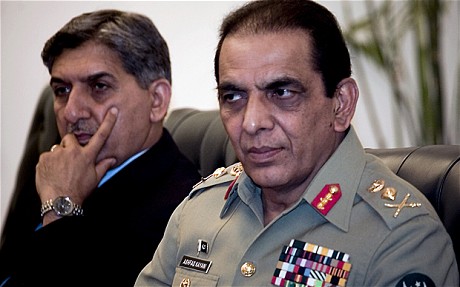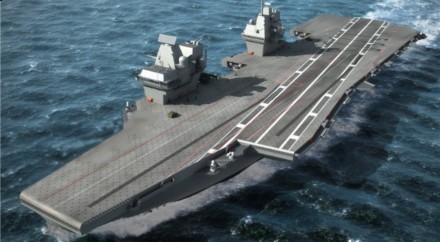The government announced a £500 billion bail-out for Britain’s banking system in October 2008, extended with a further £50 billion in January 2009.
We need to do something equally urgent and equally dramatic about our defence forces because they are in serious peril. We need a bail-out to give immediate relief from the demands for cutbacks, to cover the added expenditure of unplanned operations called for by the government, to halt the scrapping of vitally needed weapons systems, and especially, to stop the redundancies.
I know there isn’t an area of government where deep cuts are massively unpopular and often demonstrably harmful. I know that. Yet because of the disaster that was thirteen years of New Labour profligacy, coupled with crass incompetence, those deep cuts must be made and if anything, made deeper.
But defence is a special case because we’re at war right now and calling on the army, navy and air force to deliver above and beyond the call of duty on two fronts. They are already suffering the ill-effects of previous cutbacks and the catastrophic mismanagement at the Ministry of Defence over the last couple of decades. They can’t take it any more.
We were the nation that could launch an armada at 48 hours notice to sail eight thousand miles to the south Atlantic and liberate the Falkland Islands, and do that against an enemy operating close to their homeland, equipped with modern weapons and with ample time to prepare their defences. We were the nation that was second only to the military might of the USA when liberating Kuwait from Sadaam Hussein as a key player in a multi-national alliance. We are not that nation any more.
The shambles of procurement means that new weapon systems are delivered late and massively over budget. Some are only run to completion because the cost of cancellation was prohibitively high thanks to penalty clauses. Who was in charge when such contracts were signed? How was this allowed to happen? Other contacts, presumably without penalties to protect them, are cancelled leaving us without vital operational capability.
I applaud those senior officers who are now speaking out about the strain the operations over Libya in particular are causing, on top of the climate of cutbacks and uncertainties in general.
Here is a very depressing speech given by Vice Admiral Sir Jeremy Blackham (retired). It’s depressing because it confirms from first-hand knowledge what we have suspected all along. Here’s one point he makes: “We are used to the comforting and rather romantic thought that our forces are world class, and that we are military leaders in Europe. I believe this is no longer the case. As just one piece of evidence the French, now indubitably the leading European military power, have flown three times as many sorties in Libya as the RAF.” And even that level is unsustainable.
There may be hope on the horizon if Liam Fox, the Defence Secretary can bring about the degree of organisational restructuring that is needed, here’s his business plan.
We must also hope that The Defence Reform Unit under Lord Levene will also propose meaningful reforms. Unfortunately, it’s not clear who they are taking their advice from and there is very little to be discovered in the public domain, here’s an introduction on the MoD web site.
Clearly they must have a period of open consultation where experienced and reform-minded individuals can tell them in no uncertain terms what is needed, otherwise they’ll only get their input from the vested interests who are already in the MoD. I can’t see anywhere that says they will do this, and they are due to report by the end of July – in a few weeks time – so someone needs to rattle their cage. Here’s my shortlist of who they ought to invite to talk to them: Air Chief Marshal Sir Michael Graydon, Lieutenant General Sir Henry Beverley, Vice Admiral Sir Jeremy Blackham, Major General Sir Patrick Cordingley, Major General Julian Thompson, Air Commodore Andrew Lambert, Colonel Tim Collins, Commander John Muxworthy, Antony Hitchens, Allen Sykes, Andy Smith.
We must have serious reforms in place to justify the bail-out. We must have that bail-out.


